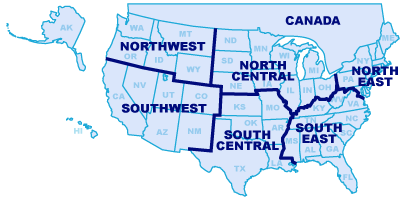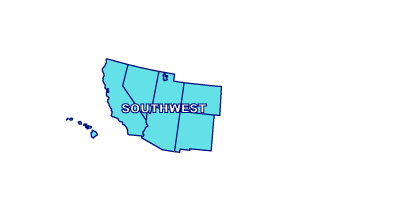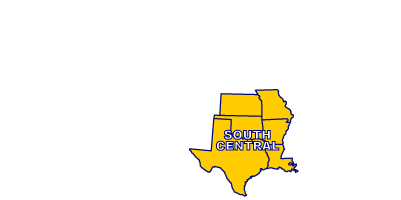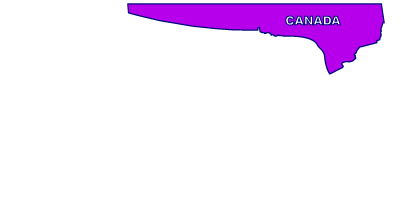Christian Colleges with Sociology
The Christian colleges included here offer your major of interest. You may read through the articles to learn more about your major of interest. You may also select the schools you'd like information from and click "Continue" under the list of schools. The Christian Connector and those schools that you request information from will receive the information you provide on the form so they can respond and meet your information request. Once the form is completed, you'll automatically be entered to win one of four $500 Visa Gift Cards.
Click on the map below to bring schools in the selected region to the top of the list:








Articles on Sociology:
Christian Colleges with Sociology Majors
Article by Rachelle Wiggins
“Your job is part of God’s calling for you…it is an integral piece of God’s plan for your life as He seeks to extend His kingdom and its influence throughout the world.” ~Barret Duke
Sociology, at its core, is the study of society. Concerned with the exploration of human behavior, sociology seeks to explain and resolve social issues in areas such as deviance, discrimination, marriage and family breakdown and poverty. A major in sociology delves into all aspects of social interaction including upbringing, education, crime, sexuality, aging, gender roles, group interaction, work roles and social inequality. This degree gives you a competitive advantage by preparing you for a wide range of career options in anything from public service to social work to human resources to criminal justice. If you feel a sense of social responsibility to improve your community and world, then a major in sociology may be the right pursuit for you.
In addition to an interest in the psychology behind why people think and act as they do, sociology majors often possess strong interpersonal skills including the ability to mediate conflict. Other helpful traits for this major include keen critical thinking and problem-solving abilities, especially in areas pertaining to social phenomena. In addition, clear communication skills (both oral and written) are highly desirable. These skills are needed in order to succeed in this degree program as well as in related future careers.
As a sociology major you will learn much about using qualitative research methods and statistical tools. In addition to gathering data through interviews and surveys, you will learn to analyze and interpret your research and to present your findings in writing and through public presentation. Once you complete your core classes, you can expect to take Social Statistics, Social Theory and Research Methods. You may then take a diverse range of classes such as:
- Criminology
- Feminist Social Theory
- Social Psychology
- Population Studies
- Consumer Behavior
- Social Movements
The electives you choose often reflect the career specialization that most interests you. It is possible you may participate in some sort of internship as part of your program, as well.
Sociology is a broad-based major, leading into a wide range of career areas in everything from business to government to law to education. Some who pursue a degree in sociology plan to pursue ongoing education, however, there are many possible career outcomes with a bachelor’s degree. Some common examples are:
- Guidance counselor
- Private investigator/CIA analyst
- Immigration/customs agent
- Probation officer/correctional officer
- Market research analyst or policy analyst
- Human resources representative or specialist
- Court reporter or court mediator
Your heart for understanding and helping people and society at large is not coincidental. Jesus said, “Let your light shine before others so that they may see your good works and give glory to your Father who is in heaven.” (Matthew 5:16). If working in one of the above careers holds fascination for you, then maybe God wants to use your influence for good through a major in sociology.
A future in Sociology
By Jennifer Bailey
Sociology - this major would most appeal to someone who has an innate curiosity and wants to understand how people from different cultures, races, economic and educational backgrounds work, function and operate together.
Are you interested in studying organizations and how they function- both in the good and bad scenarios? Or, are you fascinated about social networks, gender roles, relationships, family structure and behavior or interpersonal relationships and processes? Perhaps urban development, societies or economies excite you? Are you curious about why gang violence would rise or fall or what would make a person want or need to be part of such a group to begin with? Are you passionate about the current immigration issues that are on the nightly news nearly daily? Do race and ethnic relations stir you and make you want to understand them more and help do something to make it better? Do you love people and have a deep inner desire to influence others with your natural leadership qualities and resourcefulness to make the world around you a better place for all?
If you found that you answered yes to many of the above questions, you will be excited to know you will be equipped with the tools needed to make sense of the ever-changing social world and be able to contribute solutions to complex social issues.
Studying sociology can help develop your creativity, innovation, critical thinking, analytical problem solving and communication skills. As a graduate, you will have a foundation for better understanding and engaging with the world as a whole.
Because this degree is quite broad, the list of possibilities should serve simply as a tool to get your creative mind thinking.
A degree in sociology offers a foundation for careers in teaching, consulting, business, social services, public policy, government services, international organizations and for-profit and non-profit organizations. More specifically, you could use it to become a marketing consultant, a substance abuse counselor, an adoption counselor, youth and elderly services, urban planning, do advocacy work, become a social worker or a high school teacher, a probation officer, a research associate, a public health consultant- the list goes on.
As a small example- should you use your degree in a corporate setting, you could be a part of analyzing data to determine who to market to and why, what influences people and best ways to reach them such as advertising techniques. All of which could translate to higher sales and profits for the business. Businesses that use this data include restaurants, retail stores, hospitals, factories and many more.
There are undergraduate, graduate and even doctorate degree programs available in sociology and include classes in business, economics, social movements, government, social change, social psychology and interpersonal relationships.
If you are looking for a job with high pay over making a difference, than this may not be the field for you but if you want to leave a legacy in people’s lives and that feeds your soul - you’re in the right place!